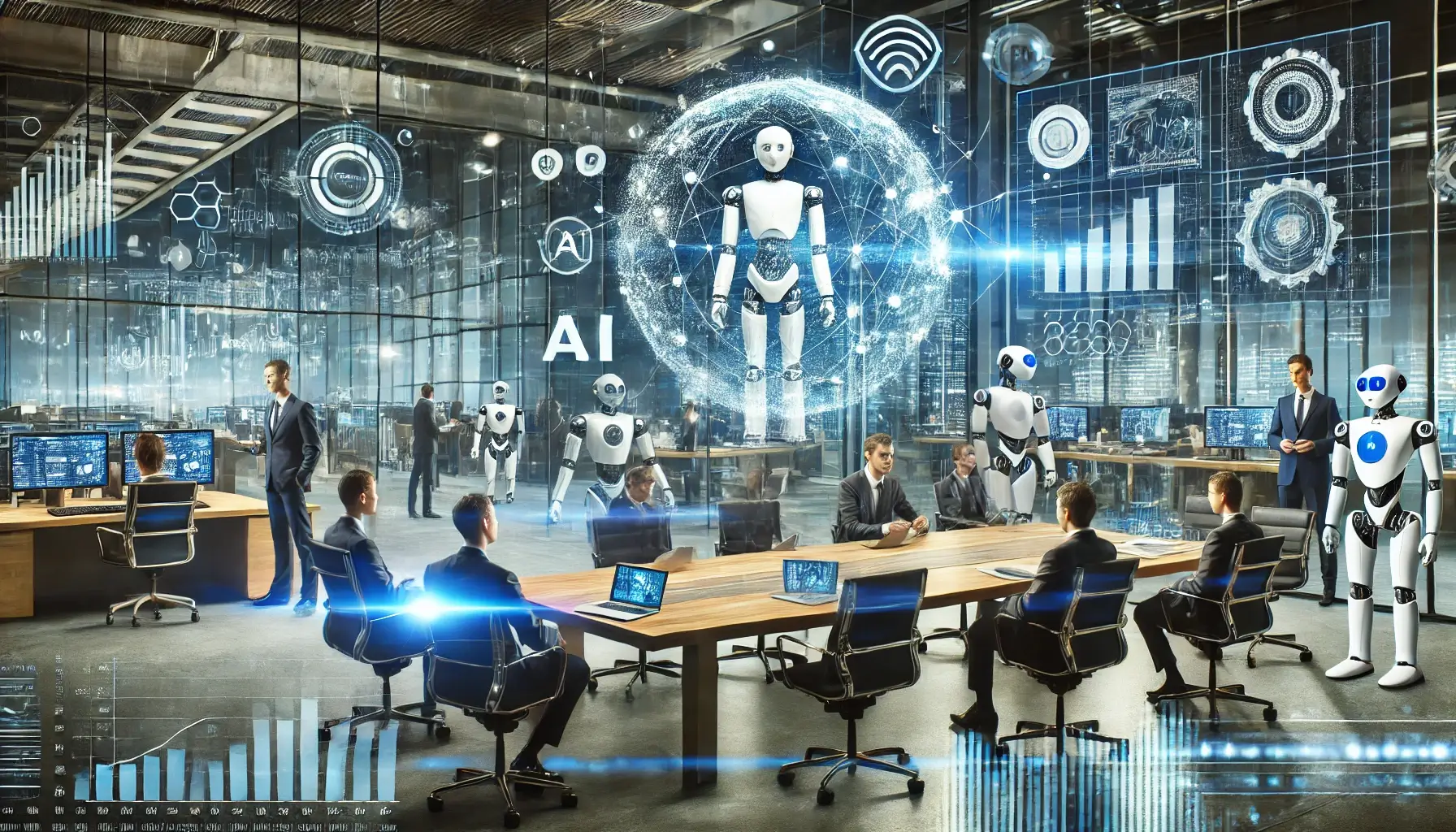-
How Digital Nomads Are Redefining Work and Lifestyle 🌍💻
Mar 06, 2025 | 38 Comments -
How Artificial Intelligence is Transforming Healthcare 🏥🤖
Mar 06, 2025 | 0 Comments -
How Cryptocurrency is Reshaping the Global Economy 💰🌍
Mar 06, 2025 | 0 Comments -
How to Build a Strong Personal Brand: Stand Out & Grow Your Influence 🚀📢
Mar 02, 2025 | 0 Comments -
The Power of AI in Business: How Artificial Intelligence is Transforming Industries 🚀🤖
Mar 02, 2025 | 0 Comments -
How Smart Homes Are Changing the Way We Live 🏡🔋
Mar 02, 2025 | 0 Comments -
How Electric Vehicles Are Revolutionizing Transportation 🚗⚡
Mar 02, 2025 | 0 Comments -
The Future of Renewable Energy: How Green Technology is Changing the World 🌍⚡
Mar 02, 2025 | 0 Comments

AI in Business: How Artificial Intelligence is Transforming Industries
Artificial Intelligence (AI) is revolutionizing industries by automating processes, optimizing decision-making, and driving innovation. From finance and healthcare to marketing and logistics, AI-powered solutions are reshaping how businesses operate. As AI technology advances, companies that embrace automation and data-driven insights gain a competitive edge. This guide explores how AI is transforming various industries and how businesses can leverage AI for growth.
The Rise of AI in Business
AI adoption in businesses has surged due to improvements in computing power, big data, and machine learning algorithms. Companies are using AI for:
- Process Automation: AI-powered software reduces human error and increases efficiency.
- Predictive Analytics: AI analyzes large datasets to forecast trends and consumer behavior.
- Personalization: AI customizes marketing campaigns and user experiences.
- Cybersecurity: AI detects and prevents fraud, cyber threats, and data breaches.
AI in Finance and Banking
The finance sector is one of the biggest adopters of AI, leveraging it for risk assessment, fraud prevention, and automated trading.
1. AI-Powered Algorithmic Trading
AI-driven trading bots analyze market data and execute trades faster than humans. Hedge funds and financial institutions use AI for:
- High-frequency trading to maximize profits.
- Risk management and market predictions.
- Portfolio optimization using machine learning models.
2. Fraud Detection and Prevention
AI helps banks detect fraudulent transactions by identifying suspicious patterns in real-time.
- Machine learning models flag unusual spending behaviors.
- AI-powered biometrics enhance identity verification.
- Chatbots and AI assistants detect phishing attempts.
3. AI in Customer Service
AI-powered chatbots and virtual assistants provide 24/7 support, answering customer inquiries instantly.
- Reduces customer wait times.
- Enhances user experience through personalized responses.
- Automates common queries to free up human agents for complex issues.
AI in Healthcare
The healthcare industry is leveraging AI for diagnostics, treatment planning, and drug discovery.
1. AI in Medical Imaging
AI-powered tools analyze X-rays, MRIs, and CT scans with high accuracy, aiding in disease detection.
2. AI-Powered Drug Discovery
AI accelerates drug discovery by analyzing chemical compositions and predicting successful formulations.
3. Personalized Healthcare
AI tailors treatment plans based on genetic data and patient history.
AI in E-Commerce and Marketing
E-commerce businesses use AI to enhance customer experiences and optimize sales strategies.
1. AI-Powered Product Recommendations
AI analyzes browsing and purchasing behavior to suggest products that match customer interests.
2. Chatbots for Customer Engagement
AI chatbots provide instant responses to customer inquiries, improving engagement and conversions.
3. AI in Digital Advertising
AI optimizes ad campaigns by analyzing user behavior and adjusting targeting in real time.
AI in Manufacturing and Logistics
AI-powered robots and automation are streamlining production processes and supply chain management.
1. Smart Manufacturing
AI-driven robots handle repetitive tasks, improving efficiency and reducing human error.
2. Predictive Maintenance
AI detects potential equipment failures before they occur, minimizing downtime.
3. AI in Supply Chain Management
AI optimizes logistics by forecasting demand, managing inventory, and reducing waste.
AI in Cybersecurity
With increasing cyber threats, businesses rely on AI for data protection and fraud prevention.
1. Threat Detection and Response
AI-powered security systems analyze network traffic and detect anomalies in real time.
2. AI in Identity Verification
Facial recognition and biometric authentication enhance cybersecurity measures.
3. Automated Incident Response
AI-driven security systems automatically respond to cyber threats, minimizing damage.
Challenges of AI Adoption
Despite its benefits, AI adoption comes with challenges:
- High Implementation Costs: AI solutions require significant investment.
- Data Privacy Concerns: AI collects and processes vast amounts of personal data.
- Bias in AI Algorithms: Machine learning models can inherit biases from training data.
- Workforce Displacement: AI automation may replace certain jobs.
The Future of AI in Business
The AI revolution is still in its early stages, with future trends including:
- AI-Driven Decision Making: Businesses will rely on AI for strategic planning.
- AI Ethics and Regulations: Governments will introduce policies to govern AI development.
- Human-AI Collaboration: AI will augment human work rather than replace it.
Conclusion
AI is reshaping industries, providing businesses with innovative solutions to improve efficiency, security, and customer experience. As AI technology advances, companies that adopt AI-driven strategies will gain a competitive advantage in the market.
0 comments
No comments yet. Be the first to comment!
Your comment